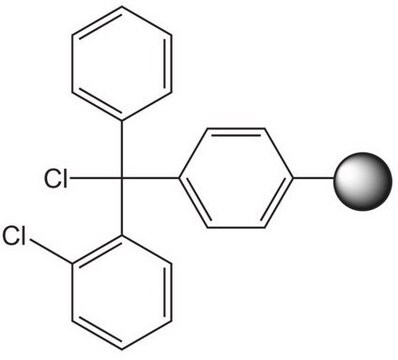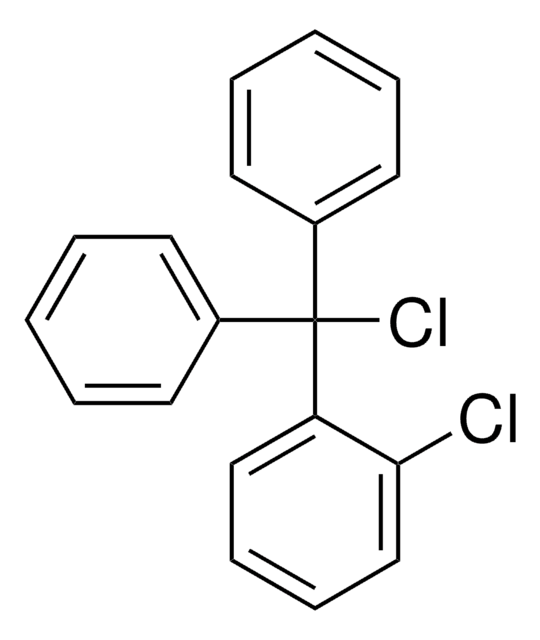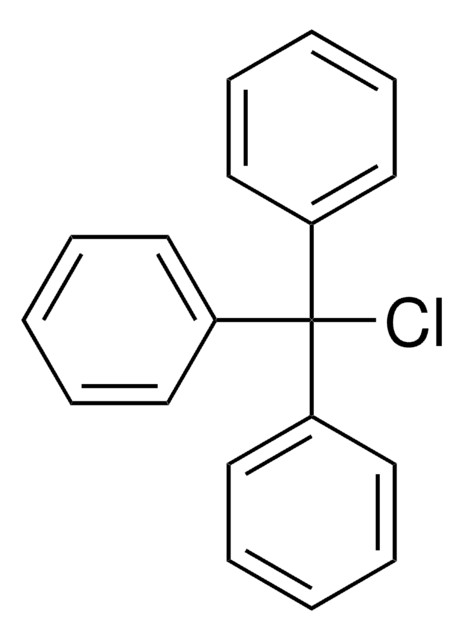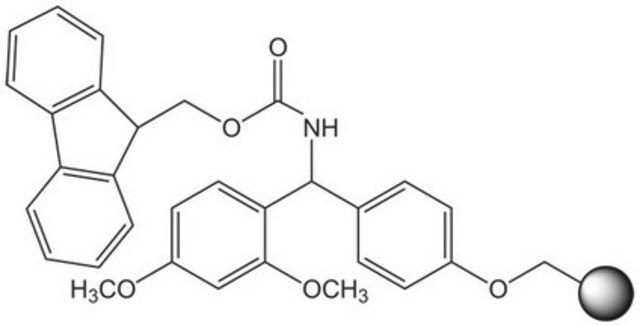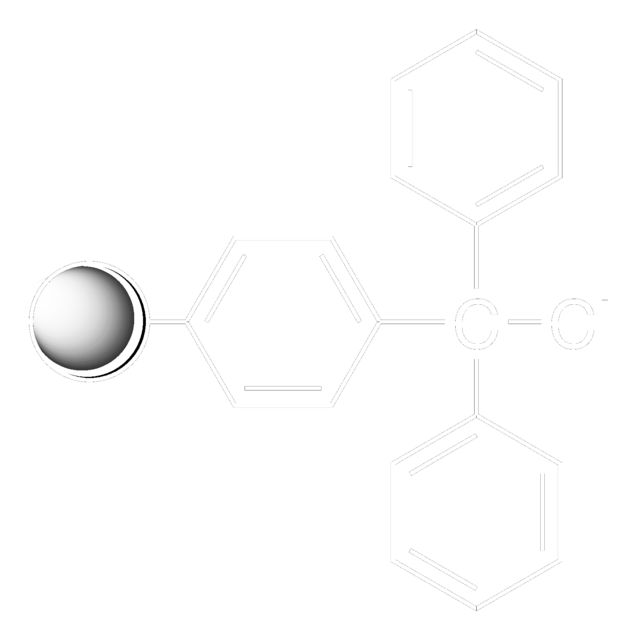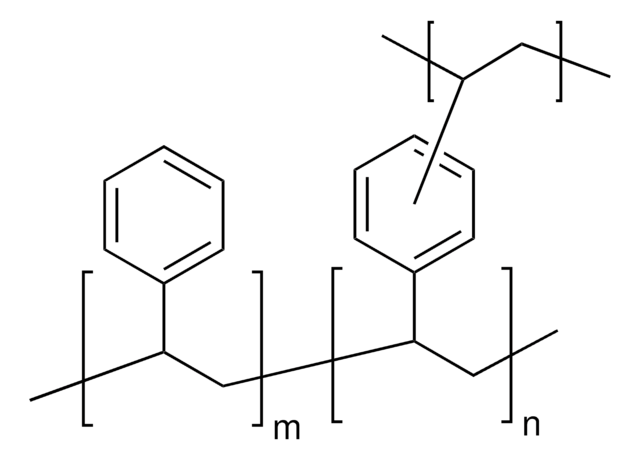Wichtige Dokumente
532290
2-Chlortritylchlorid, polymergebunden
200-400 mesh, extent of labeling: 1.0-1.5 mmol/g Cl loading, 1 % cross-linked
Synonym(e):
2,α-Dichlorbenzhydryl-polystyrol vernetzt mit Divinylbenzol
About This Item
Empfohlene Produkte
Qualitätsniveau
Quervernetzung
1 % cross-linked
Eignung der Reaktion
reaction type: Fmoc solid-phase peptide synthesis
Kennzeichnungsgrad
1.0-1.5 mmol/g Cl loading
Partikelgröße
200-400 mesh
Anwendung(en)
peptide synthesis
SMILES String
Clc1ccccc1C(Cl)(c2ccccc2)c3ccccc3
InChI
1S/C19H14Cl2/c20-18-14-8-7-13-17(18)19(21,15-9-3-1-4-10-15)16-11-5-2-6-12-16/h1-14H
InChIKey
JFLSOKIMYBSASW-UHFFFAOYSA-N
Suchen Sie nach ähnlichen Produkten? Aufrufen Leitfaden zum Produktvergleich
Verwandte Kategorien
Anwendung
- Acid labile resin used in Fmoc-based solid phase peptide synthesis.
- Mild acidic cleavage conditions lead to the release of the peptide acid where fully protected peptides can be released if desired.
- 2-Chlorotrityl chloride resins prevent racemization of the first amino acid and are thus very useful when racemic mixtures are forming (common with residues such as His or Cys).
- This resin also prevents diketopiperazide formation, which can be an issue with proline C-terminal peptide sequences.
Use:
- Attachment of the first amino acid residue is effected by stirring the resin, the protected amino acid, and excess diisopropylethylamine (DIEA) in dichloromethane.
- Cleavage of the final protected peptide fragment is achieved under very mild conditions using either acetic acid/trifluoroethanol (TFE)/dichloromethane (1:1:8; v/v/v), hexafluoroisopropanol (HFIP)/dichloromethane (1:4; v/v) or simply 0.5% trifluoroacetic acid/dichloromethane (v/v).
- Higher concentrations of TFA can be used if retention of peptide side chaing protecting groups is unimportant. Note that trityl chloride is moisture-sensitive, and, therefore, should be stored and handled appropriately.
- If the resin becomes deactivated, treatment with acetyl chloride or SOCl2 in toluene before use is recommended to restore its activity.
Signalwort
Warning
H-Sätze
Gefahreneinstufungen
Eye Irrit. 2 - Met. Corr. 1 - Skin Irrit. 2 - STOT SE 3
Zielorgane
Respiratory system
Lagerklassenschlüssel
8A - Combustible corrosive hazardous materials
WGK
WGK 3
Flammpunkt (°F)
Not applicable
Flammpunkt (°C)
Not applicable
Persönliche Schutzausrüstung
dust mask type N95 (US), Eyeshields, Gloves
Hier finden Sie alle aktuellen Versionen:
Analysenzertifikate (COA)
Die passende Version wird nicht angezeigt?
Wenn Sie eine bestimmte Version benötigen, können Sie anhand der Lot- oder Chargennummer nach einem spezifischen Zertifikat suchen.
Besitzen Sie dieses Produkt bereits?
In der Dokumentenbibliothek finden Sie die Dokumentation zu den Produkten, die Sie kürzlich erworben haben.
Unser Team von Wissenschaftlern verfügt über Erfahrung in allen Forschungsbereichen einschließlich Life Science, Materialwissenschaften, chemischer Synthese, Chromatographie, Analytik und vielen mehr..
Setzen Sie sich mit dem technischen Dienst in Verbindung.